Scoil Mhuire is a Creative School. This means that we work with the Arts Council of Ireland to provide our pupils with a varied and immersive Arts Curriculum. We strive to be a Creative School as children and young people who read for pleasure and take part in structured cultural classes and arts activities tend to be more engaged in school, have better academic skills and improved well-being.
The arts are organised expressions of ideas, feelings and experiences in images, in music, in language, in gesture and in movement. They provide for sensory, emotional, intellectual and creative enrichment and contribute to the child’s holistic development. Much of what is finest in society is developed through a variety of art forms which contribute to cultural ethos and to a sense of well-being. Arts education enables the child to explore alternative ways of communicating with others. It encourages ideas that are personal and inventive and makes a vital contribution to the development of a range of intelligence.
A purposeful arts education at primary level is life-enhancing and is invaluable in stimulating creative thinking and in promoting capability and adaptability. It emphasises the creative process and so ensures that the child’s work is personal and has quality. Attempts at artistic expression are valued, self-esteem is enhanced, spontaneity and risk-taking are encouraged and difference is celebrated. It is this affirming aspect of the creative arts that makes participation such a positive experience.
Arts education is integral to primary education in helping to promote thinking, imagination and sensitivity, and arts activities can be a focus for social and cultural development and enjoyment in school. Arts education encompasses a range of activities in the visual arts, in music, in drama, in dance and in literature. These activities and experiences help the child to make sense of the world; to question, to speculate and to find solutions; to deal with feelings and to respond to creative experience.
NCCA Arts Curriculum
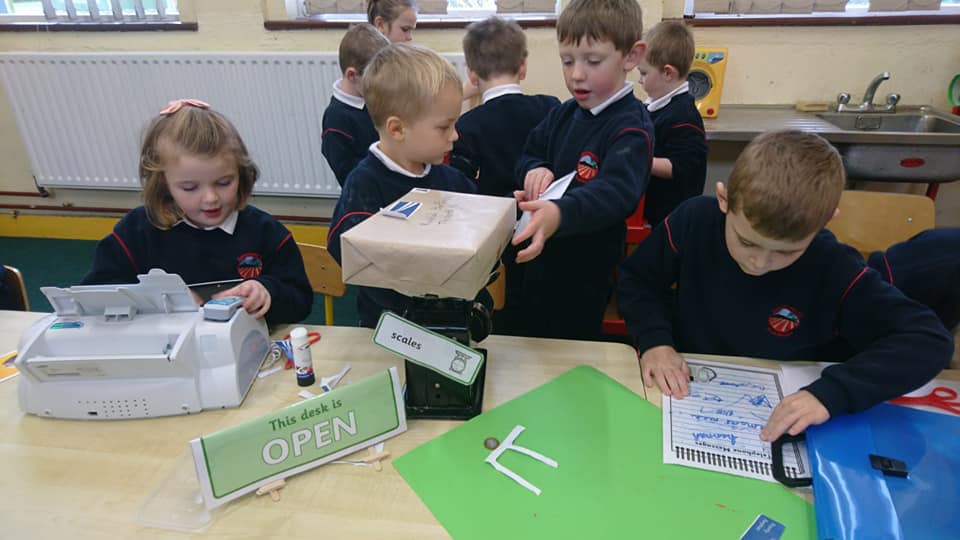
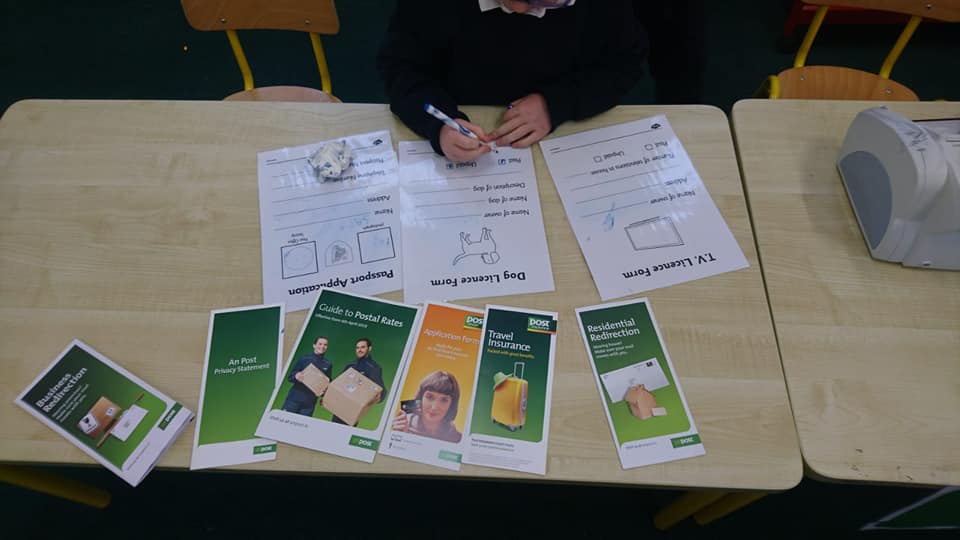
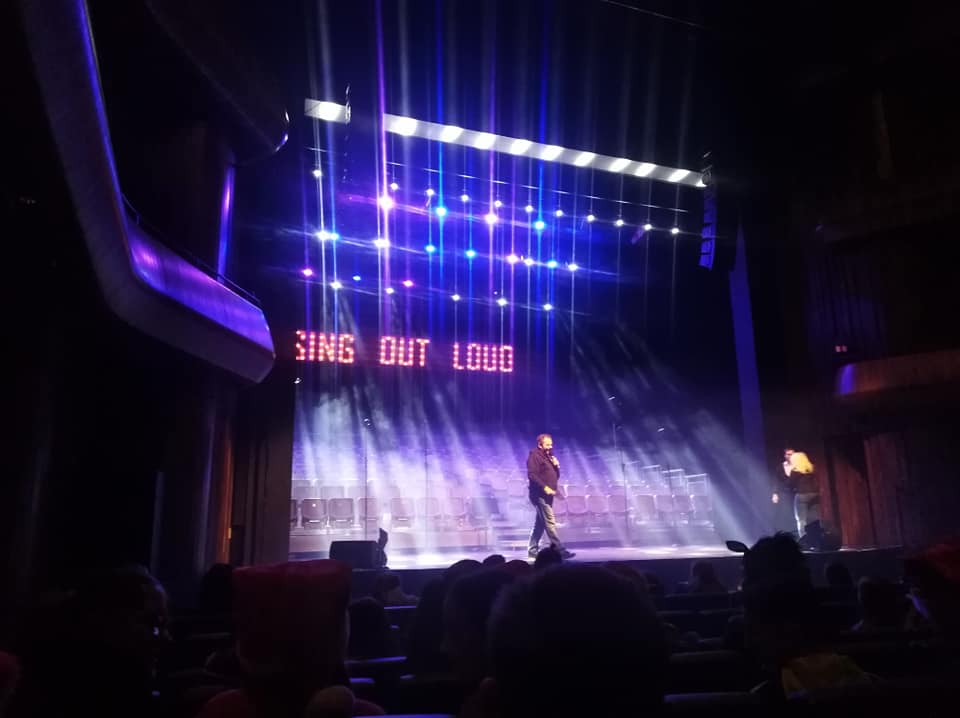
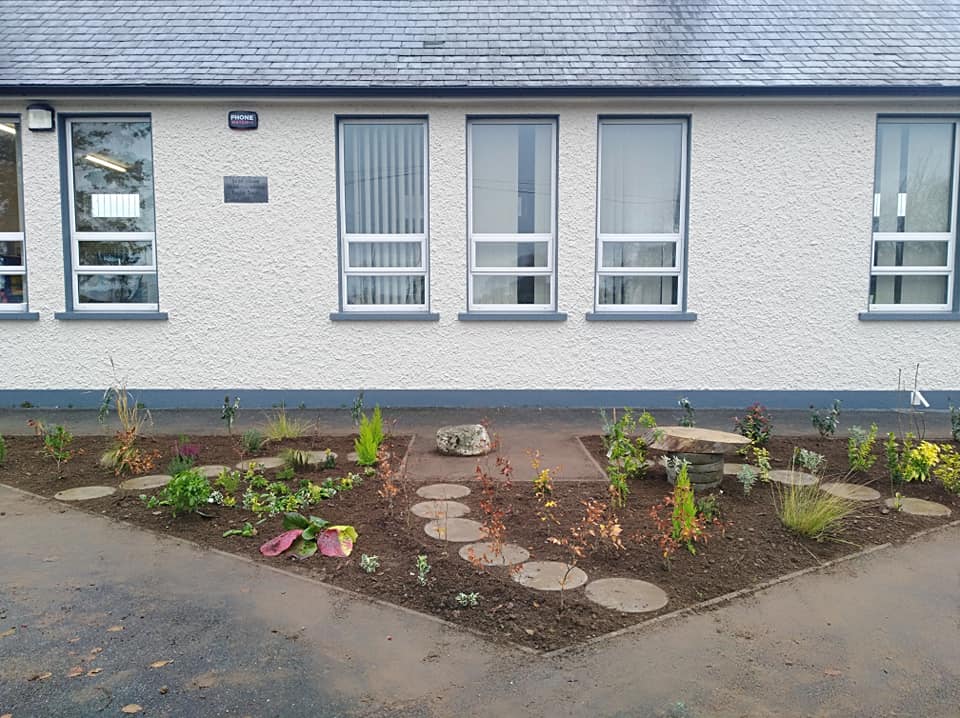
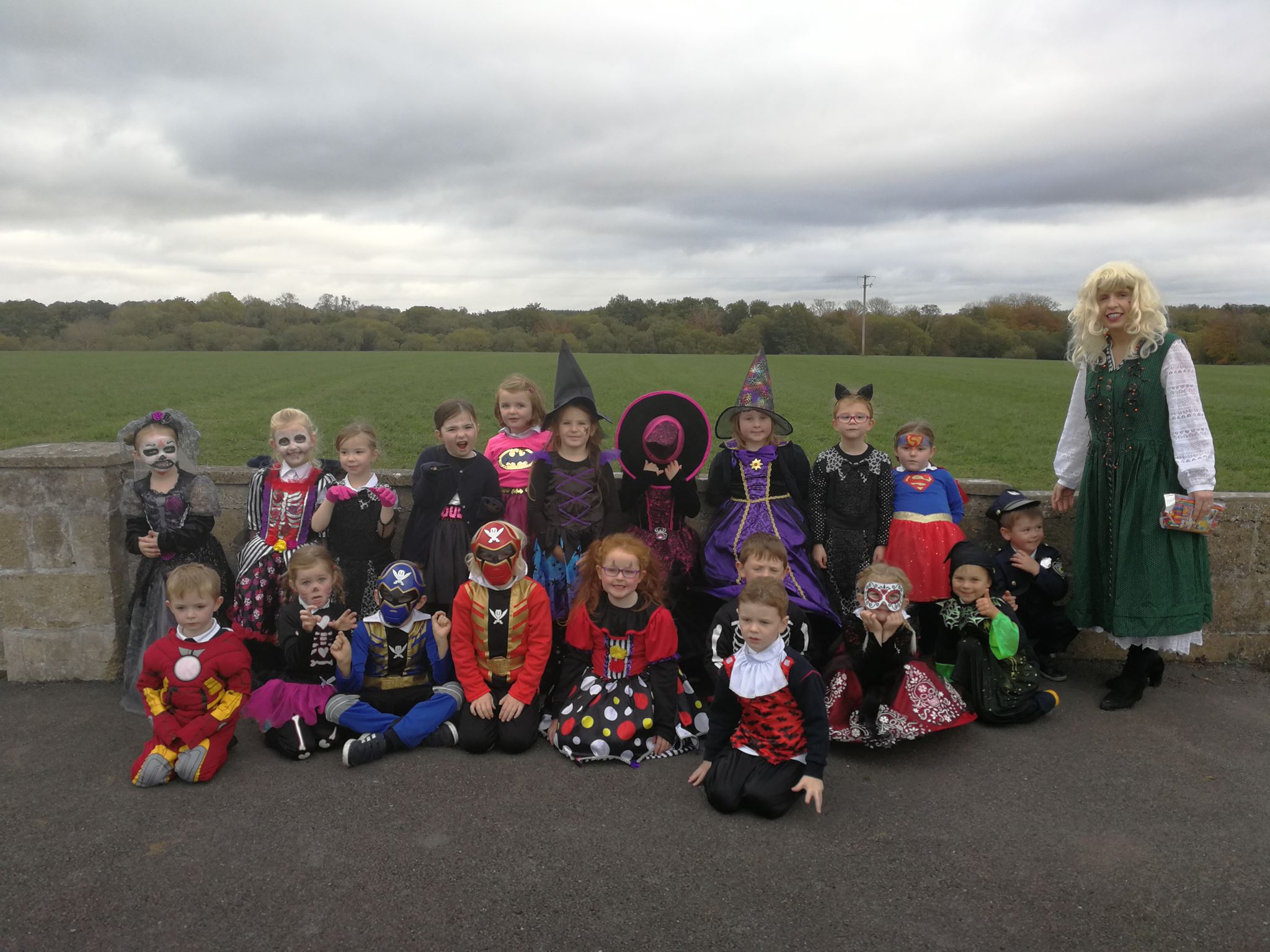
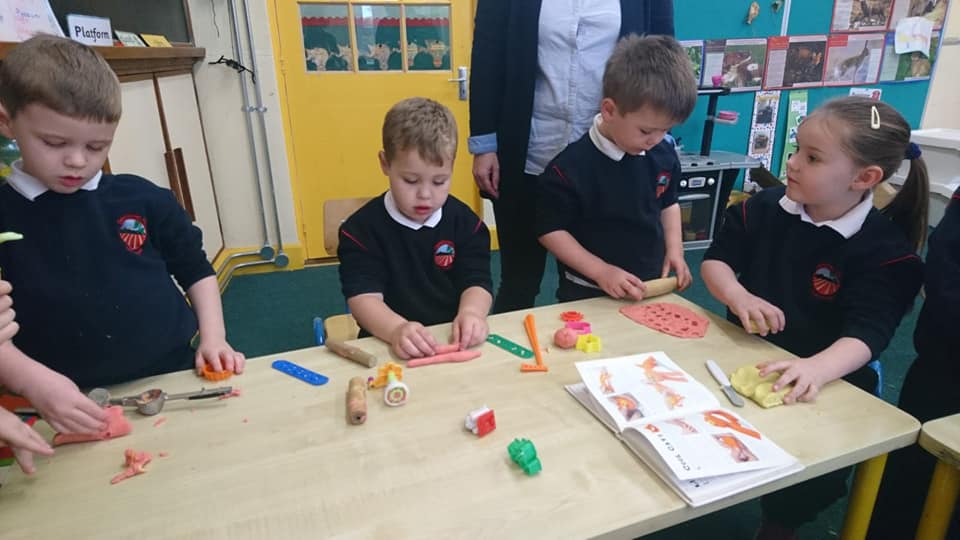
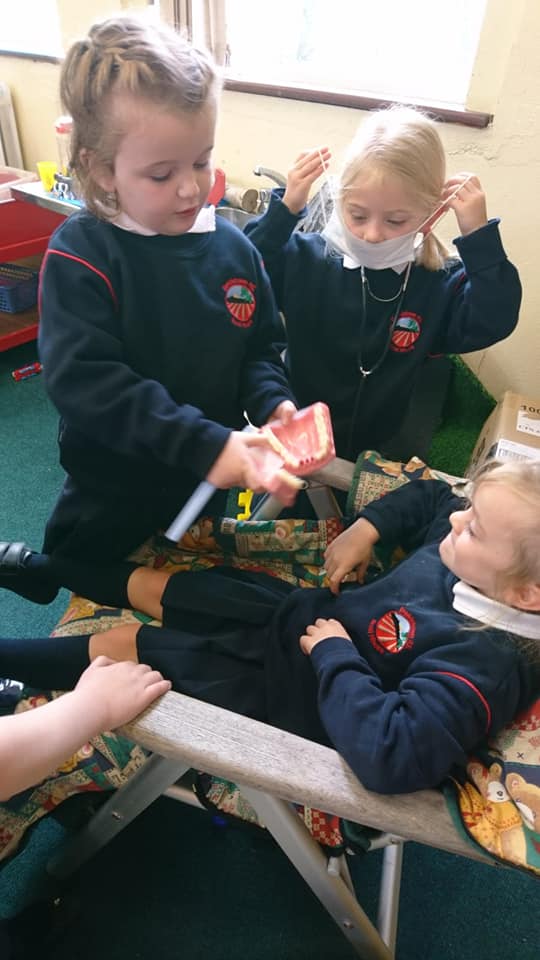
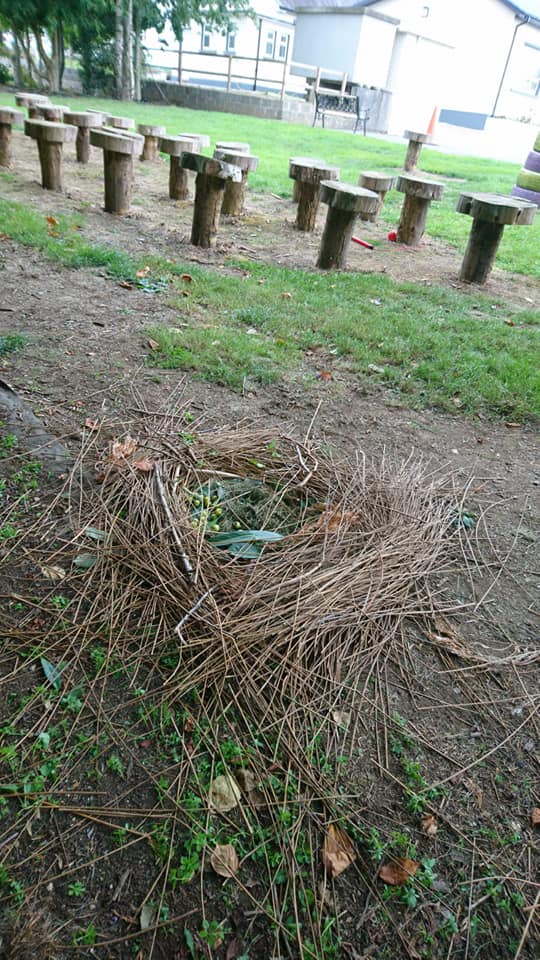
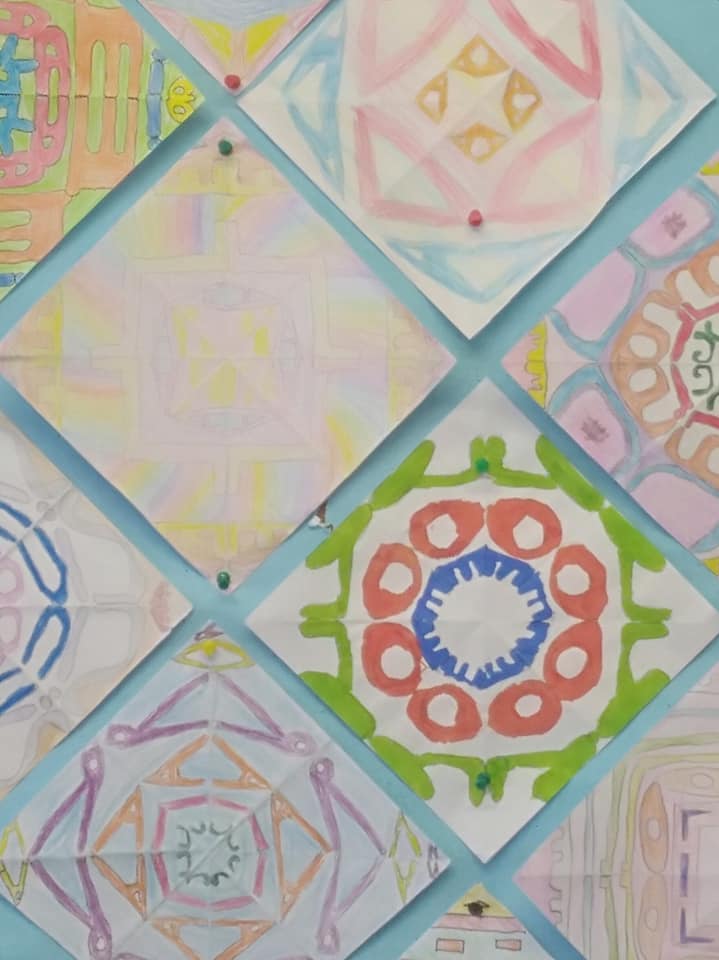
Our Creative Promise:
Our school will offer opportunities to engage in the arts, music and dramatic arts on a weekly basis
Offer opportunities for extracurricular projects, lessons and workshops in the arts
Integrated learning though play (Aistear) with a variety of themes throughout the year
Play based learning methodologies will be used in all classes
We will promote a visually rich and positive learning environment for all students
Promote awareness of extra-curricular activities available locally for personal development
We will offer students the opportunity to be part of a school choir
Provide our students the opportunity to learn to play at least one musical instrument
Provide students the opportunity to showcase their dramatic and musical talents to the whole school community
Develop links with artists, performers and musicians in the local community
Develop links with the local library
Participation in the literary festival
Develop links with the Presentation Arts Centre
Support emergent literacy and reading: station teaching, graded reading scheme, library
50 book challenge, consecutive reading, book fair, write a book, Wexford Literary Festival, Children’s Book Trailer Award,
Use the creative process to nurture emergent writers and have their writing appreciated
Provide opportunities to visit art galleries and exhibitions
Theatre, museum visit or tour
Exhibitions of our pupils artwork
Use of digital technologies to enhance engagement in the arts curriculum
Engagement with nature to inspire creativity, expression and active learning
Why have a Creative Promise?
The respected Programme for International Student Assessment (PISA), which conducts a test of school children around the world every three years, is drawing up new questions to measure the quality of creativity among pupils.
Details are yet to be confirmed, but it is understood the changes will be introduced to the test from 2021 and have been proposed to better prepare students for future careers.
“In whatever way you construct your list of 21st century skills, you’ll always come across creativity in some form or other,” said Andreas Schleicher, who heads the PISA programme for the Organisation for Economic Co-operation and Development (OECD), in a recent address to a conference on creativity in education.
He stressed future jobs are likely to pair computer intelligence with creative skills, adding: “Things have changed and the dilemma for educators is now that routine cognitive skills – skills that are easiest to teach and easiest to test – are also exactly the kind of skills that are easiest to digitise, automate and outsource.”
Creativity is one of the core themes of the Presidency with President Higgins stating:
Ours is a society with the work of the imagination is valued by members of the public, where the fruits of the imagination are appreciated and enjoyed, where are young person who discovers he or she has a talent can have reasonable expectation that their talent will be welcomed and celebrated.
13th September 2017
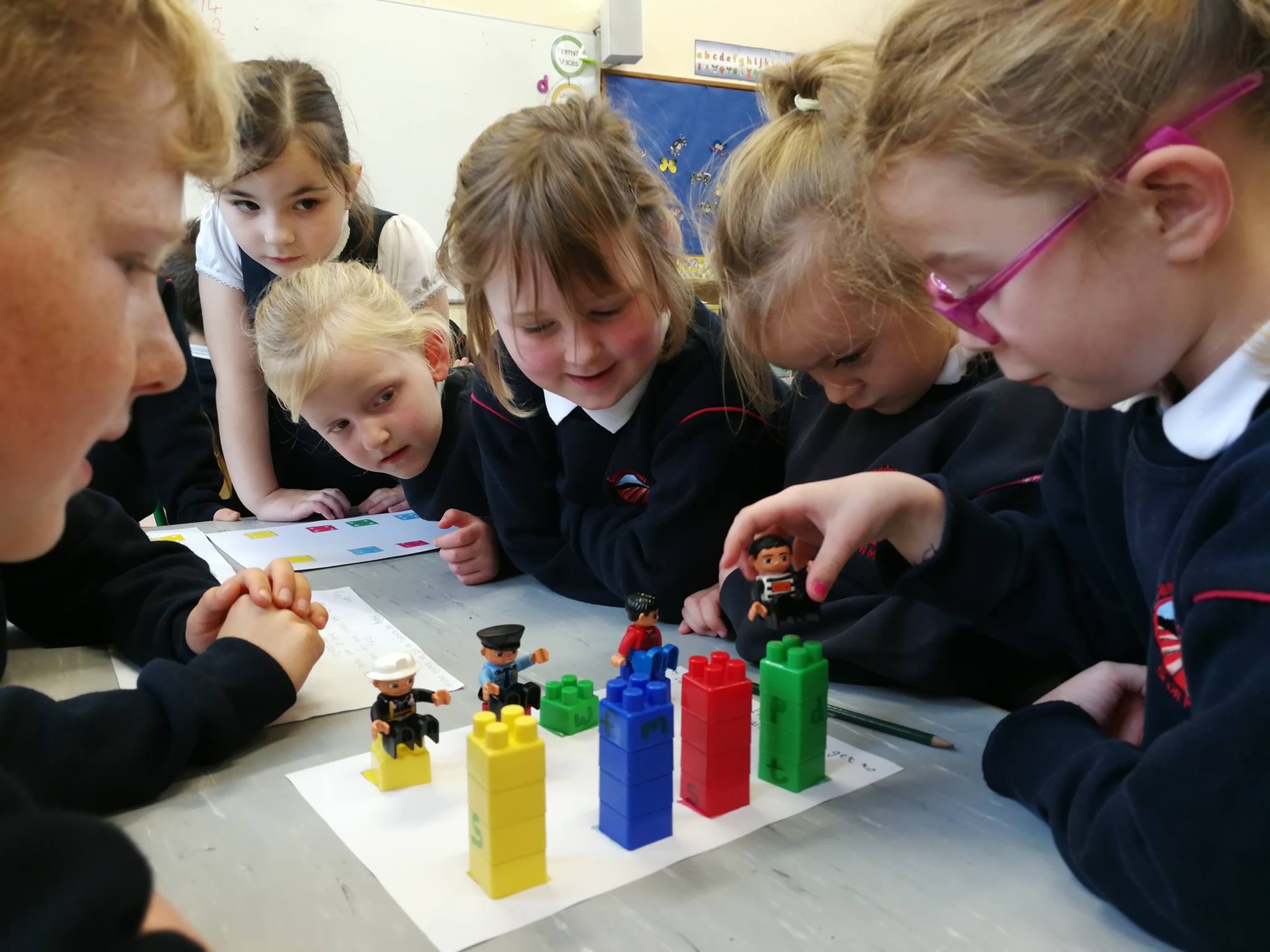
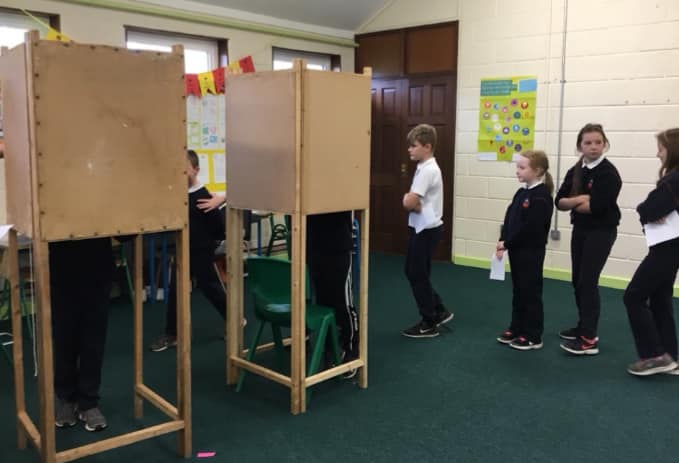
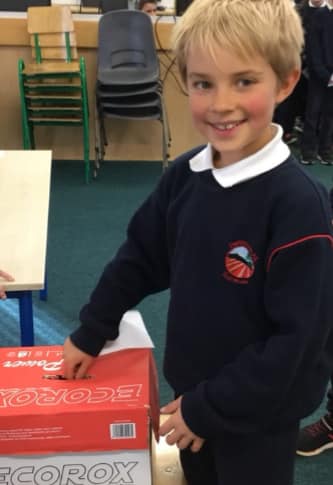
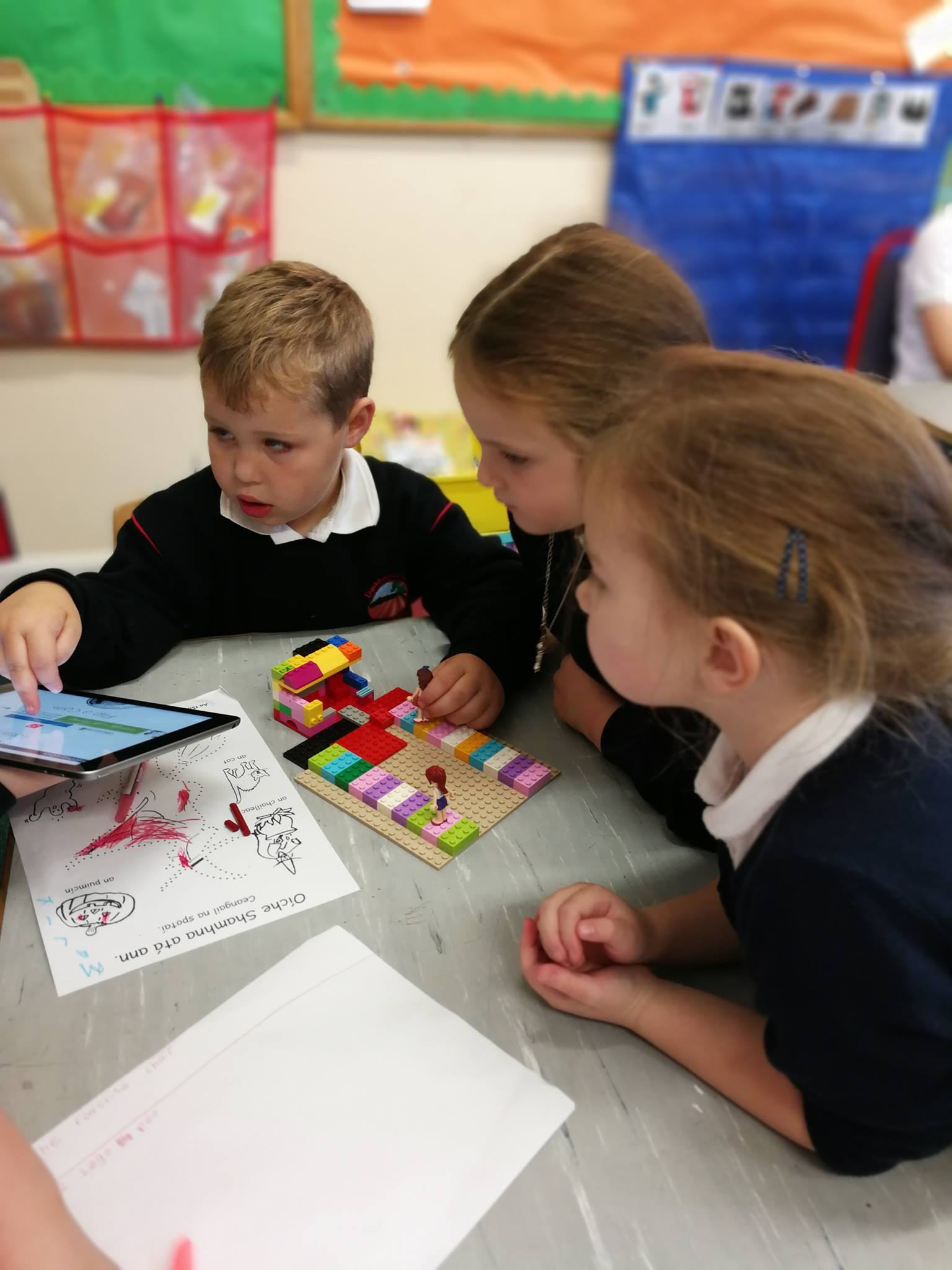
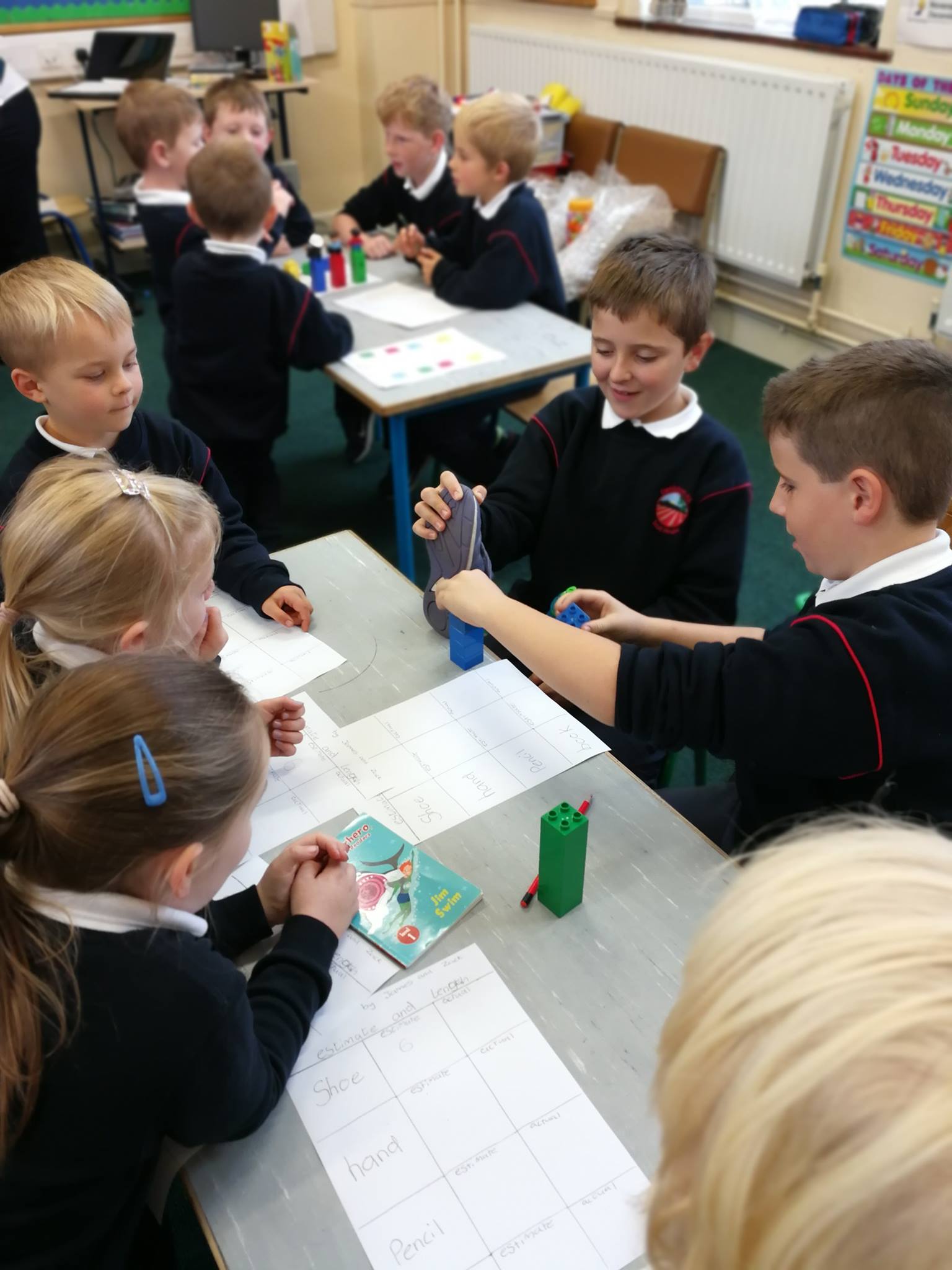
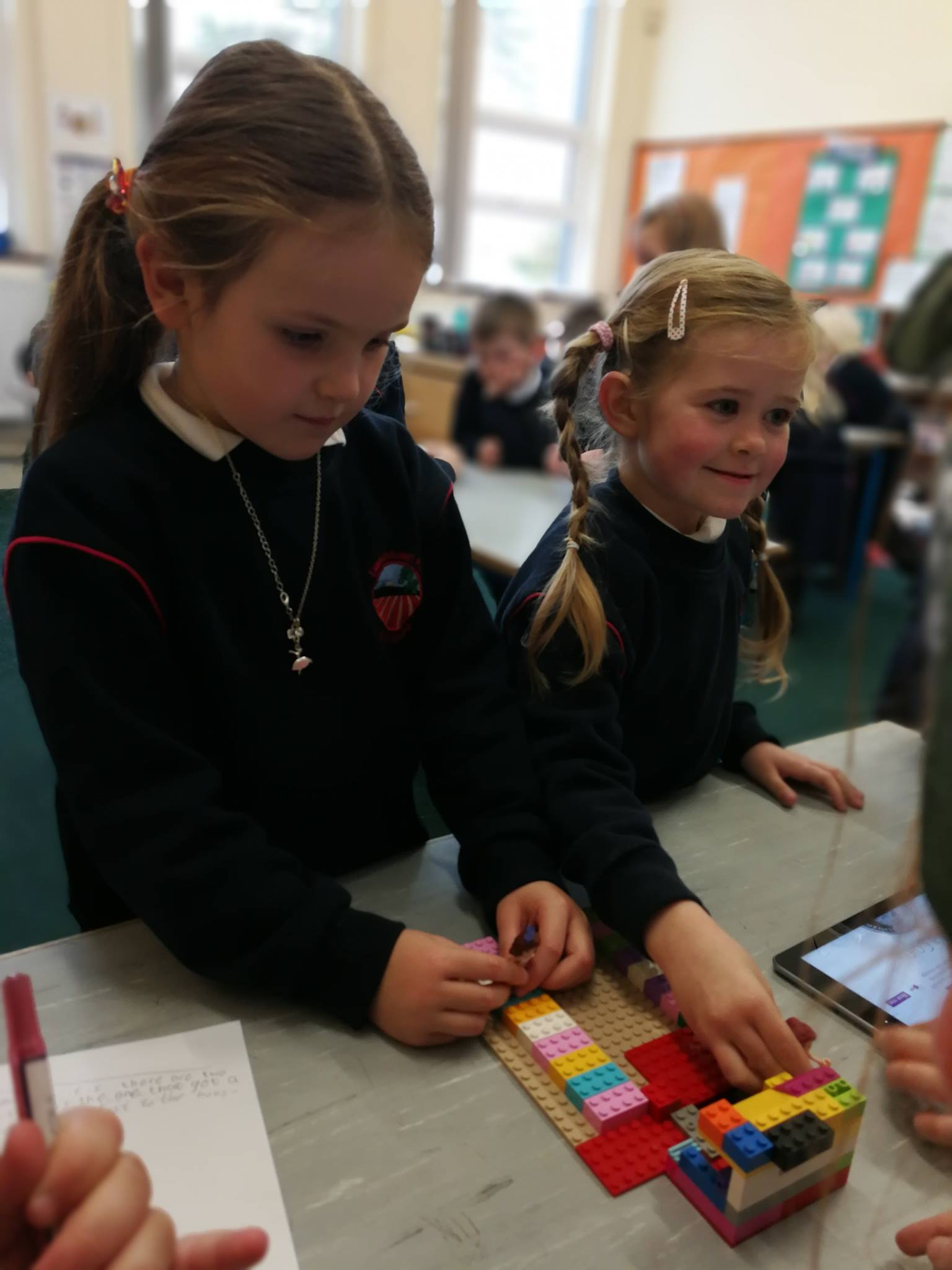
Below is an overview of the Arts Curriculum
Visual Arts: Drawing • Paint and colour • Print • Clay • Construction • Fabric and fibre.
Complementary media : The strands outlined above may be complemented by work in other media, such as photography, film and video or computer graphics, but a balance should be maintained between activities in two and three dimensional
Drama
The spontaneous making of drama scene (sometimes called improvisation )
• entering into other lives and situations • engaging with life issues, knowledge and themes through drama
• honing and shaping drama scenes for the purpose of communicating them to others
• living through a story, making it up as they go along, solving problems in the real and fictional worlds, cooperating with others, and pooling ideas
• thinking about and discussing the patterns in life so that the outcome of encounters and plots will reflect their perception of how life is or might be.
It can be said that its educational outcomes derive from two sources:
• the knowledge and insights gained from bringing the child’s experience to bear on the examination of a particular aspect of life through drama
• the personal skills, social skills and drama skills that must be encouraged if the class is to enter effectively into and create the world of the drama. These skills are as natural to the younger child as playing and need only careful support and nurturing to extend them into continuing to serve the child’s education.
Music: Children of all ages and abilities have potential in music, and music education celebrates individual differences among them. The child’s musical expression and responses to musical experience are valid, and his/her creations and innovations in musical compositions are fostered and valued. The ability to explore with guidance and to experiment and take risks with sound combinations is an essential aspect of musical growth. Music education also recognises similarities among children and the joy of shared experiences which demand collaboration, concentration and discipline.
Musical activity, alone or with others, contributes to the child’s developing creativity and self-esteem. Music education is part of a balanced curriculum which aims to develop the whole spectrum of the child’s intelligence. It involves learning in the major domains of knowledge, skills, attitudes and feelings, and the senses. It therefore contributes to the wider curriculum in a myriad of ways. For instance, while listening to music for pleasure or for specific elements and patterns, the child develops skills in discrimination, concentration and reflection that are necessary for understanding in all disciplines. Long and short-term memory is developed and spatial reasoning is enhanced as the child learns to form mental images of physical objects, to hear the sounds they make internally and to recognise differences between them. The ability to visualise and to think in abstract form enhances problem-solving skills in many areas of the curriculum. During the process of making music the child experiences satisfaction and a sense of achievement as he/she performs or creates, alone or as part of a group. The child develops technical and artistic skills, involving muscular coordination and sensitive movement, as well as skills of perseverance and self-discipline that are essential to self-expression.
